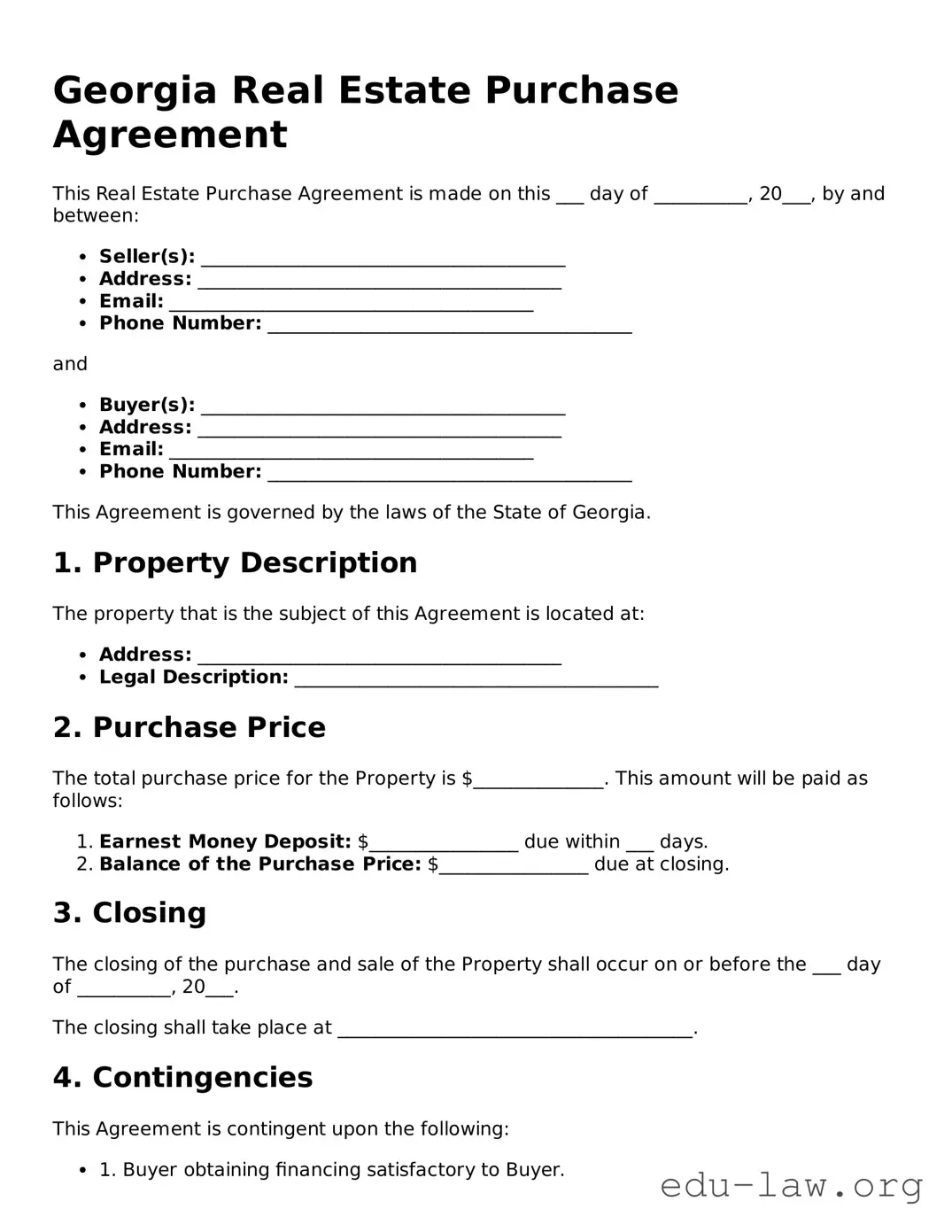What is a Georgia Real Estate Purchase Agreement?
The Georgia Real Estate Purchase Agreement is a legal document outlining the terms and conditions under which a property is sold. It covers details such as the purchase price, financing terms, and closing date. This agreement is essential for both buyers and sellers to ensure clarity and protection throughout the transaction.
Who uses this agreement?
The agreement is used by real estate buyers and sellers in Georgia. Real estate agents and brokers often facilitate this process, ensuring that the agreement meets all legal requirements and accurately reflects the terms negotiated between the parties.
What information is included in the agreement?
Key details included in the agreement are the names of the buyer and seller, property description, purchase price, earnest money deposit, contingencies (like financing and inspections), and the timeline for closing. Each clause plays a role in protecting the interests of both parties.
Do I need a lawyer to complete the agreement?
While it’s not mandatory to hire a lawyer for completing the agreement, it’s often a good idea. A legal expert can help clarify terms, ensure compliance with state laws, and provide more confidence in the process. Particularly for first-time buyers or sellers, having legal support can make a significant difference.
What is earnest money and why is it important?
Earnest money is a deposit made by the buyer to show good faith in the transaction. It signals a serious intent to purchase the property. If the deal progresses, this amount typically goes toward the closing costs. If the deal falls through due to buyer contingencies, that money can often be returned to the buyer.
What are contingencies, and how do they work?
Contingencies are conditions that must be met for the agreement to remain valid. Common contingencies might include home inspections, appraisals, or securing financing. If a contingency is not met, the buyer can usually walk away from the deal without losing their earnest money.
Is the agreement legally binding?
Yes, once both parties sign the agreement, it becomes legally binding. However, if there are contingencies, those conditions need to be satisfied before the sale can move forward. Understanding these terms is crucial to avoiding potential legal issues later on.
How do I modify the agreement once it’s signed?
To modify the agreement, both parties must agree to the changes. It’s best to draft an amendment or addendum that outlines the specific changes. This should be signed by both parties to ensure that the modified agreement remains legally binding.
What happens if one party doesn’t fulfill their obligations?
If one party fails to meet their obligations, it can lead to a breach of contract. The affected party may have several options, such as seeking damages or specific performance (forcing the other party to fulfill their obligations). It’s wise to consult with legal counsel to explore the best course of action in this scenario.
How can I obtain a Georgia Real Estate Purchase Agreement?
The agreement can typically be obtained through real estate agents, online legal document services, or local attorney offices. Many real estate websites also provide templates, but ensure they are compliant with Georgia laws before use. Consulting with a professional can help ensure you have the right version for your needs.
